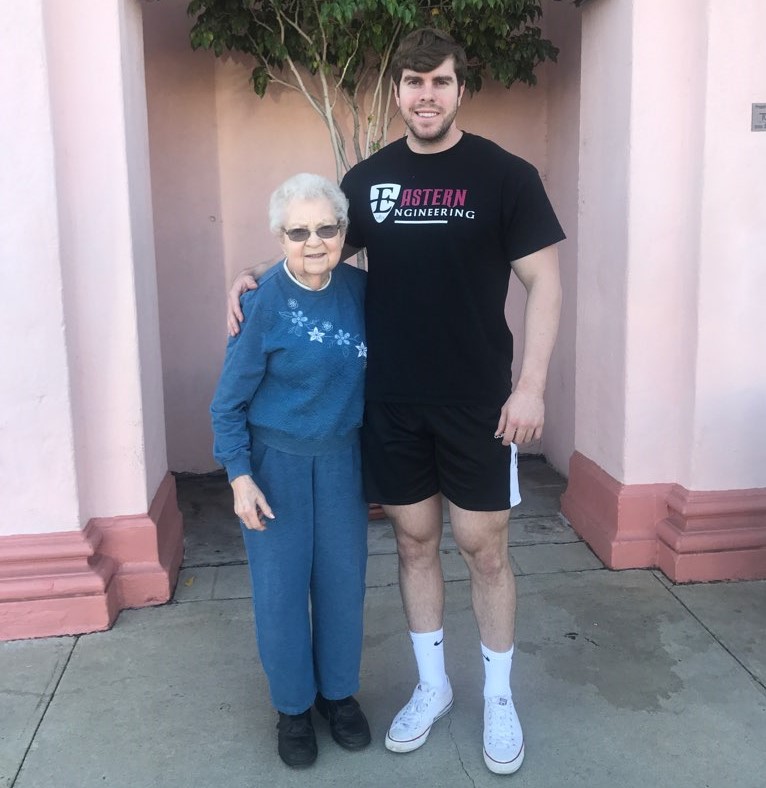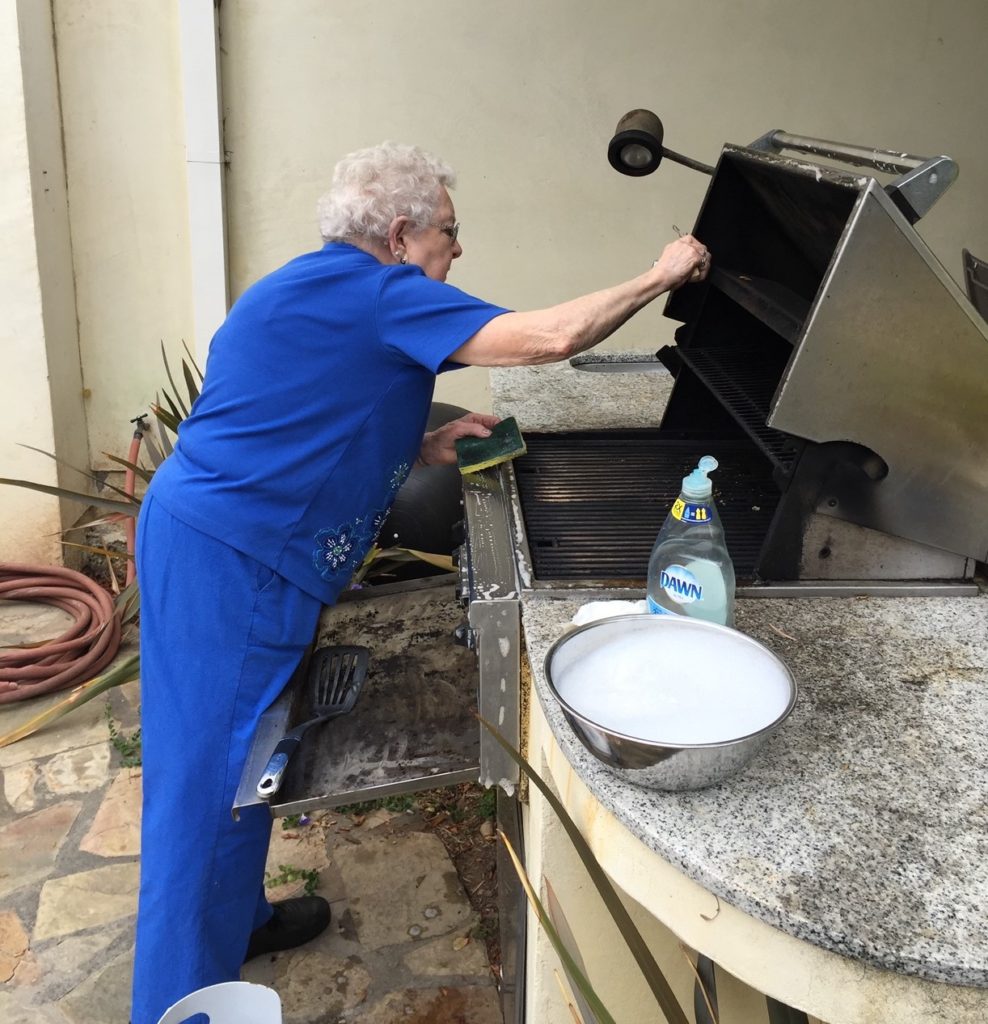“In the Bleak Midwinter,” a Christmas carol, tumbled into my thoughts as we drove from Rapid City, South Dakota, to Valentine, Nebraska. It was the third week of December and the world was dark.
The sky was black, no moon, but the stars were pinpoint crystal clear. On the far horizon, an occasional isolated light from a farm could be seen.
Every so often, a semi-truck outlined in lights making it look like a Christmas present, raced past on the opposite side. The number of cars we saw could be counted on one hand.
I never quite understood why the Bleak Midwinter was a carol, because the first stanza is: “In the bleak mid-winter/frost wind made moan, Earth stood hard as iron, Water like a stone; Snow had fallen, snow on snow, Snow on snow, In the bleak mid-winter/Long ago.
My husband and I were quiet, no radio, just surrounded in the dark, lost in our sadness. We were going back to his mom’s funeral.
Corrine Pascoe was born July 17, 1928, in Valentine. She was her family’s sixth child. When she was little, her mom, probably suffering from postpartum depression, locked her and Corrine’s brother, who was about nine months older, in a room and tried to set the house afire.
Luckily, older sisters came home from school in time, the fire was put out and the two smaller children saved.
The mom was put in a mental institution and would never return to the family. Corrine’s older sister once told me the mom was asked if she wanted to return, but she said no, she liked working where she was and wanted to stay.
Corrine’s father stayed in Valentine a few years after the mom was gone and then moved to a new town in South Dakota, two hours away, remarried and started a new family.
He left his kids in the four-room house the family had lived in. There was no hot water, no electricity – and it goes without saying – he paid no child support.
Nowadays, the kids would have been put in foster care, but back then they took care of themselves with help from older siblings.
They depended on relatives who occasionally gave them food from the farm and from a storekeeper or two, who would give them meat or milk. It was the 1930s and no one had a lot of money and no one wanted extra mouths to feed.
When Corrine’s oldest sister, who worked for the City, found that taxes hadn’t been paid on the house, she paid them, so the kids could continue to live there. When the three oldest graduated from high school, they found jobs and then husbands.Two left town and then there were three youngest still living in the house.
Corrine told me how they walked along the railroad tracks looking for coal to burn.
To take a bath involved heating water on a stove (wood/coal burning) and then bathing in the kitchen – warmest room in the house. The first person to use the tub had really hot water, the last person not so hot. It might seem foreign to many people in the United States, but daily showers/ baths were not an option.
The kids had a set of clothes for school and a special outfit for church. And of course, there was no phone.
When the fourth sister graduated from high school, the boy went to live on a farm, and Corrine stayed with her oldest sister while finishing high school.
She went to beauty school in Omaha and met her husband Emory. They would have four children and eventually open a beauty shop in Valentine. When Corrine was in her 70s they sold the salon. Until then she worked six days a week, cutting and perming hair, from 8 a.m. to 6 p.m. She continued to work out of her home until it sold when she was in her 80s.
She worked nonstop fixing hair, unless her children needed her.
When my children were born, she was one of the first visitors. She cooked, cleaned and did the laundry – or played with an older child – so I could focus on the baby.
My friends called her the Energizer bunny, because this woman who maybe stood 5’1”, never stopped moving. At dinner, she started clearing plates, even though you might not be completely finished. And while people were in mid-dessert, she would start washing dishes.
One Christmas, she started throwing away wrapping paper and picking up the room, even though people were still opening presents.
Did that irritate me? At first, yes, but once I found out her background and where she came from, it all made sense. She had no mother or father in her life to love her. Her sense of self worth was all about what she accomplished. She felt she could never do enough to be loved.
So, when she came to visit and cleaned out my kitchen drawers, rearranging and putting in little plastic dividers, I was thankful.
My laundry was done and folded. Even if it didn’t fit into the drawers – so what?
I tried to draw the line with washing my windows because I didn’t want her on a ladder. Still she marched to Norris Hardware, bought ammonia, took newspapers and started on the windows she could reach.
I tried to find pretty things to send her, because I knew as a child, she didn’t have them.
Her oldest sister felt exercise was important and Corrine followed her example. She used to ride her bike around the small community, well into her 70s. She refused to wear a helmet because it messed up her perm. When she fell off and was hurt, she switched to walking about the town in the early mornings. In the 1990s, she was still doing a few miles every day.
Always on the lookout for something valuable, something that could be used, she occasionally found change or clothes along the road. One time at a family gathering, she held up a gigantic pair of men’s jockey shorts she had found that morning and told my brother-in-law matter of factly “I’ll wash these up and they’ll look like they’ll fit you perfectly.”
The laughter and outrage were understandable, but so was my mother-in-law, who didn’t waste anything—everything was usable.
After she retired, she had saved enough money to go on trips with other seniors to faraway places like Russia and Amsterdam. She told me she walked the parking lots, not only for exercise, but said she often found change.
After retiring from the shop, she regularly baked cinnamon rolls and cookies and delivered them to the radio station, the banks and different stores in town.
She knitted baby caps and gave them to the hospital. Every newborn went home with one of Corrine’s little handmade caps.
Many people think that if one is born poor, it means that one is destined to continuing poverty and even crime. I don’t think so.
Instead, I think people, rich or poor, who have a work ethic are the ones who come out okay in life.
At Corrine’s funeral “On Eagles Wings” was sung: “And he will raise you up on eagle’s wings/there you are/the breath of dawn/make you to shine like the sun/and hold you/and hold you. He will hold you in the palm of his hand.”
Corrine may have grown up in poverty, but she was never poor because she had family.
She worked hard, saved and taught her children to do the same. Sitting in God’s hand, she can look down – I’m not sure she can be still – I hope she finally has the rest she so deserves.



Sue, thank you so much for sharing my mother’s life story with all your readers. I will miss her so! Thank you, Linda
Thank you …
Thank you Sue for sharing. My aunt Corrine will be truly missed. The Wilson sisters and brother are together again. Thanks again Carol
Beautiful!
I had the pleasure of knowing CORRINE what a beautiful story and legacy she has left her children. Love to all her family.
Wonderful remembrance! So sorry for your family’s loss. She was an amazing woman